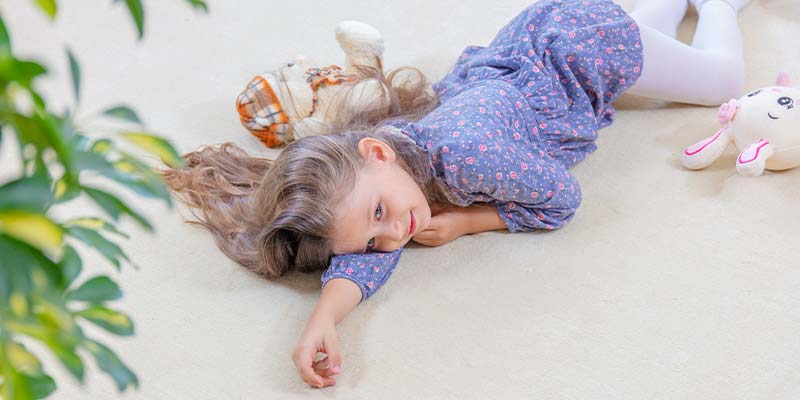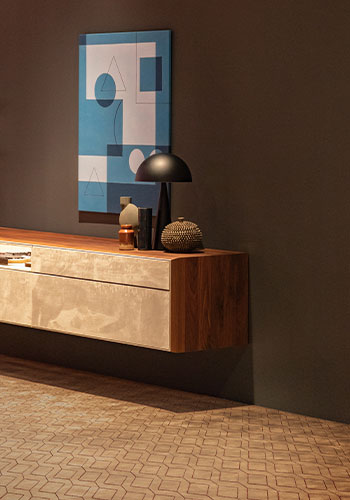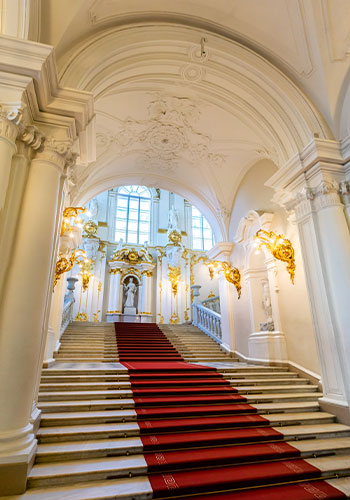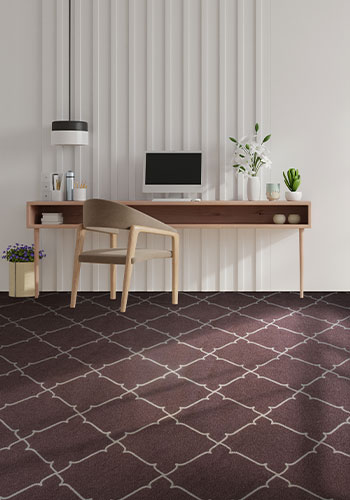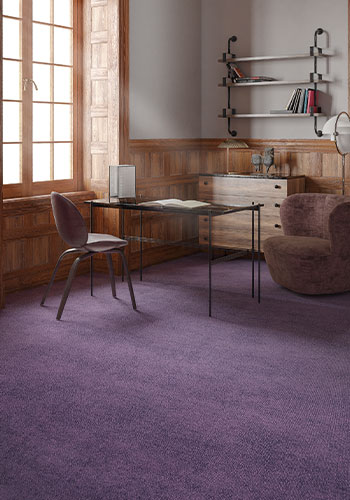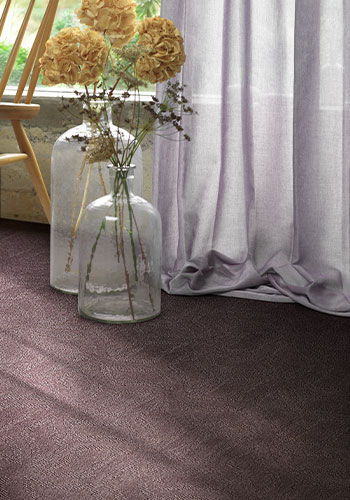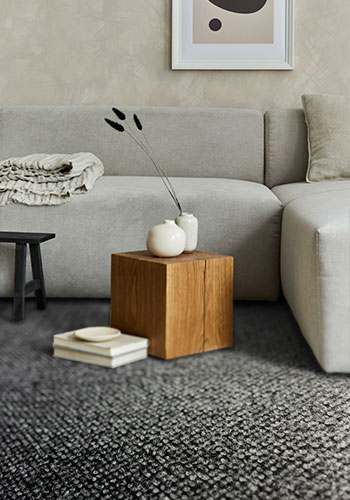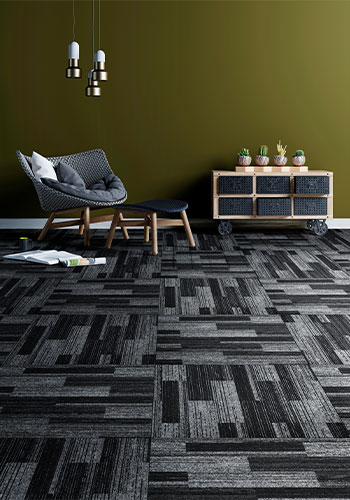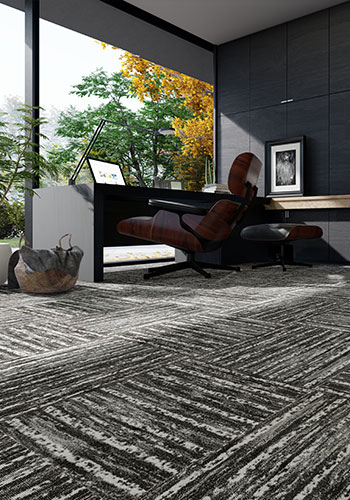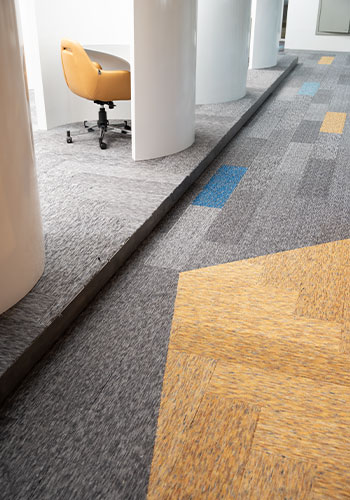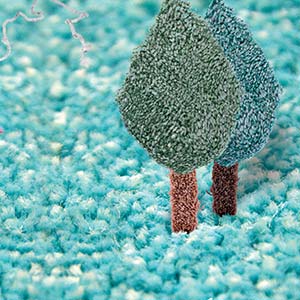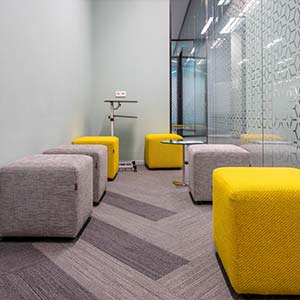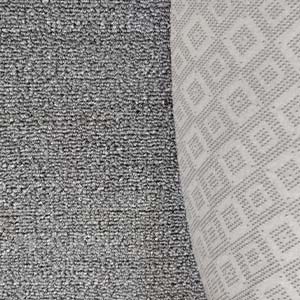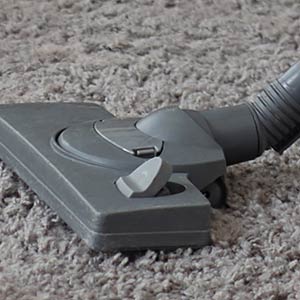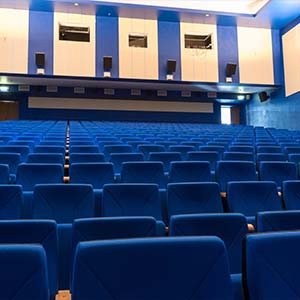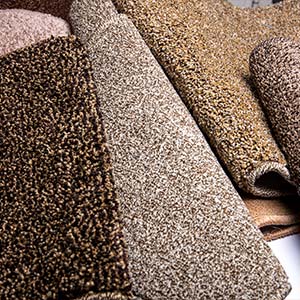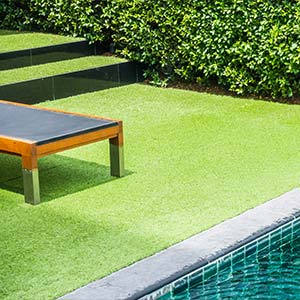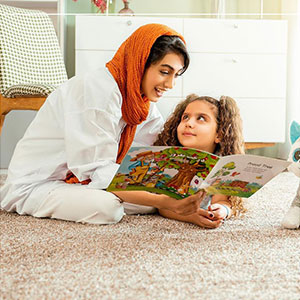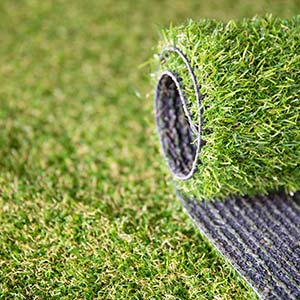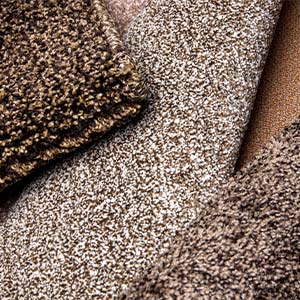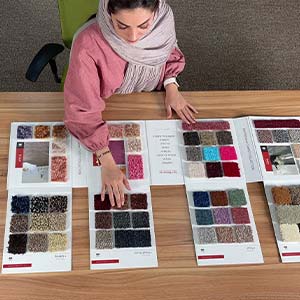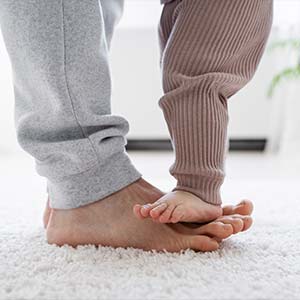What Is Wall-to-wall Carpet?
Wall-to-wall carpet, also known as Fitted Carpet or Moquette, is a flooring option that covers the entire floor, reaching from one wall to the opposite wall. Unlike conventional carpets or rugs, which are typically used to cover specific areas, wall-to-wall carpet serves distinct purposes and offers varied applications. In the following sections, in this article, we will delve deeper into the world of wall-to-wall carpets, exploring their types, benefits, and a collection of other valuable articles related to the topic:
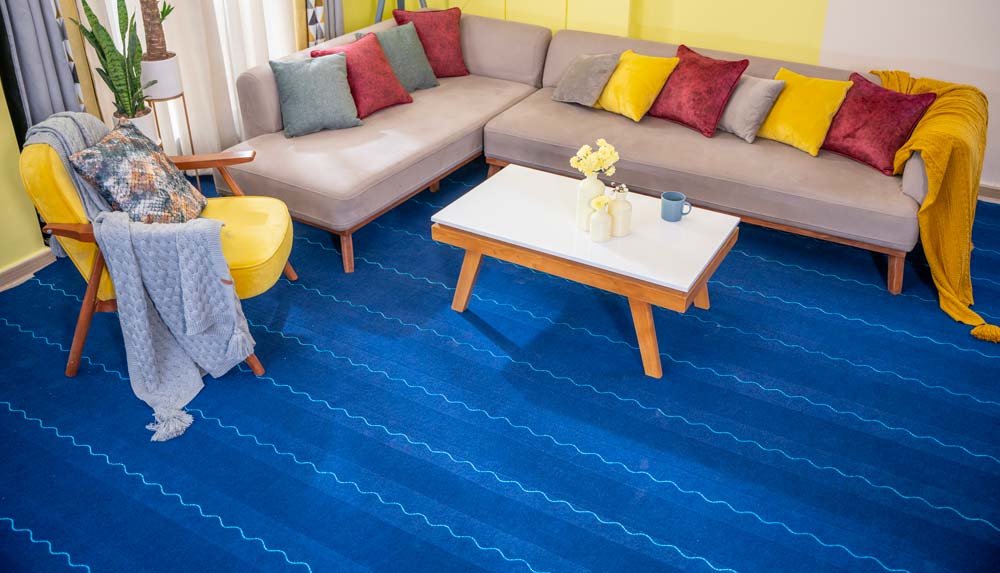
Types of Wall-to-Wall Carpet
There are four common types of wall-to-wall carpet which can be seen below with their subcategories:
- Tufted Pile
- Loop Pile
- Cut Pile
- Loop & Cut Pile
- Needle-Felt
- Printed
- Brocaded
- Embossed
- Needle Punched
- Carpet tiles
- Artificial Grass
In the next sections, we’re looking deeper in each type of moquette:
What is a Tufted Pile Wall-to-wall Carpet?
A tufted wall-to-wall carpet (also known as tufted pile) is a type of carpet that is made by inserting yarn into a backing material. This process creates a soft, textured surface that can be used in both residential and commercial spaces. In the following two images, you can observe the structure of both loop and cut pile tufted carpets, gaining a clear understanding of the differences between these two primary subcategories of tufted wall-to-wall carpet:
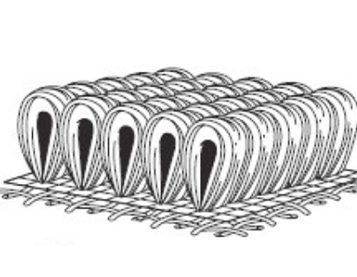
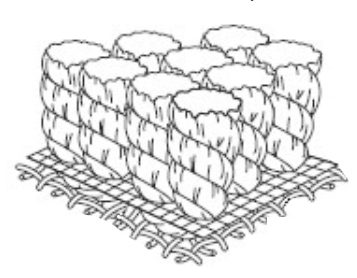
What is a Needle-Felt Wall-to-wall Carpet?
Needle-felt wall-to-wall carpet (also known as nonwoven carpet or felt carpet) is a type of carpet that is made using a special technique called needle felting. In this process, synthetic fibers are mechanically entangled using barbed needles, creating a dense and durable carpet without the need for traditional backing material. Needle-felt carpets are known for their durability, stain resistance, and sound-absorbing properties. They are commonly used in commercial settings like offices, hotels, and public spaces due to their resilience and ability to withstand high foot traffic. You can find all our needle-felt carpets by clicking here.
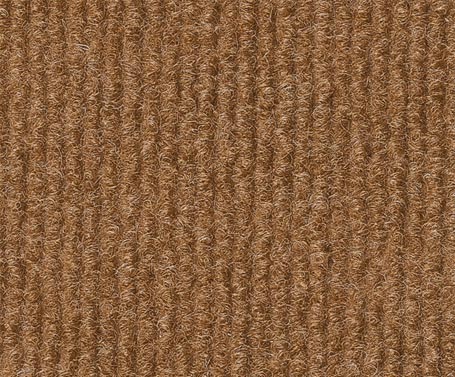
Printed Needle-Felt Carpet
Printed needle-felt carpet is a variation of needle-felt carpet featuring patterns or images printed on its surface. Look at the following images, They’re trying to show you how a printed carpet can look:
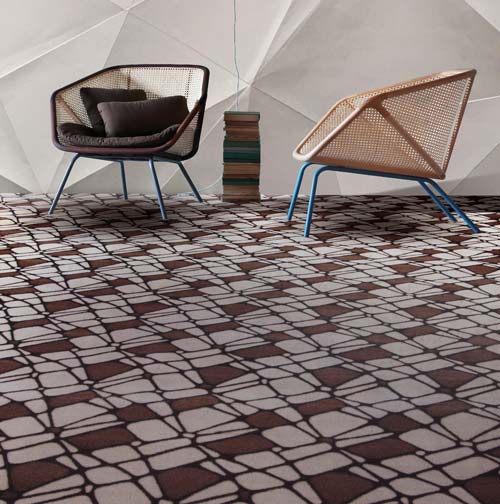
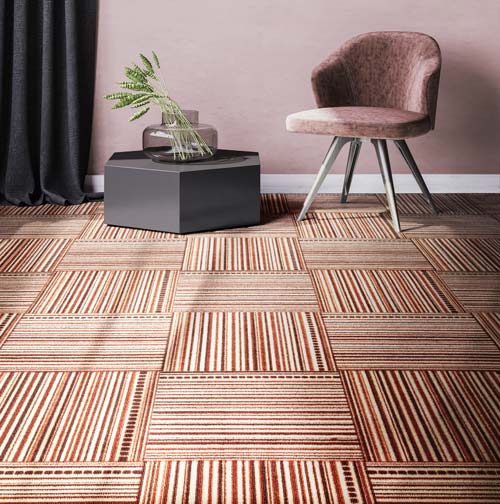
Brocaded Needle-Felt Carpet
A brocaded needle-felt carpet is created by adding a pattern to the felt through a brocading process. Below, we have provided images of our brocaded carpets:
Embossed Needle-Felt Carpet
An embossed needle-felt carpet is a type of wall-to-wall carpet crafted by heating and pressuring felt with a specific pattern.
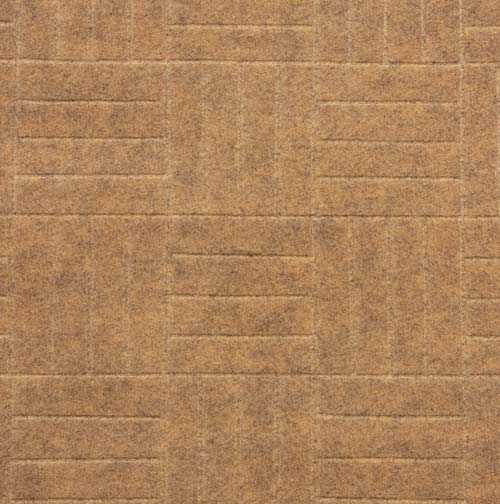
Needle Punched Needle-Felt Carpet
Needle-punched carpet is similar to embossed carpet, but instead of using heat, it is crafted by applying pressure to felt with a specific pattern. Here are some examples:
Carpet Tiles
Carpet tiles are small, individual pieces of carpet that are usually square-shaped. Unlike traditional broadloom carpet that comes in large rolls, carpet tiles are designed to be installed in smaller sections. They are made by cutting full-sized carpets into smaller tiles and adding a stronger backing to them.
One of the main advantages of carpet tiles is their flexibility in installation. They can be laid down in various patterns, allowing for creative designs and easy replacement of damaged or stained tiles. Carpet tiles are commonly used in commercial spaces and offices because they are convenient, easy to install, and offer the flexibility to customize the look of a room.
Here are some of our carpet tiles (You can find all our carpet tiles by clicking here):
Artificial Grass
However artificial grass can be categorized as a tufted carpet, we preferred to talk about that as one of the main categories of wall-to-wall carpet for some reasons such as different usage, technical specifications, production process, etc. from tufted carpets.
Artificial grass, also known as synthetic turf or fake grass, is a man-made surface that resembles natural grass. It’s typically made from synthetic fibers like polyethylene, or polypropylene, designed to look and feel like real grass. Artificial grass is used in landscaping, sports fields, and other outdoor areas where natural grass may be difficult to grow or maintain.
One of the key benefits of artificial grass is that it requires minimal maintenance compared to real grass. It doesn’t need watering, mowing, or fertilizing, making it a low-maintenance alternative. Artificial grass is often used to create green lawns in places with limited water supply or in areas where natural grass struggles to grow due to shade, poor soil, or heavy foot traffic.
You can find all our artificial grasses by clicking here.
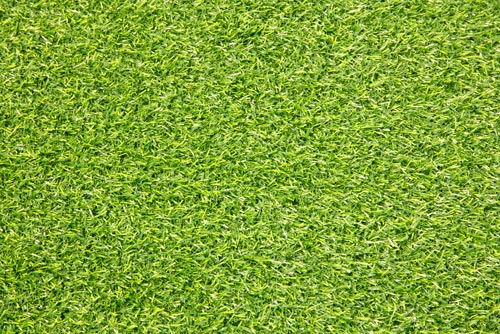
Check out our articles ‘Artificial Grass: Bringing Nature Home‘ and ‘Artificial Grass: 7 Key Features‘ for further information about artificial grass.
What Are the Benefits of Wall-to-Wall Carpet?
- Comfort and Warmth: Wall-to-wall carpets offer a soft and warm surface underfoot, providing comfort in both residential and commercial spaces, especially cut pile ones.
- Sound Insulation: They act as effective sound absorbers, reducing noise levels within a room by absorbing sound waves and minimizing echoes.
- Versatility in Design: With a wide range of colors, patterns, and textures, wall-to-wall carpets provide design flexibility, allowing for seamless integration into various interior styles.
- Insulation Properties: Carpets contribute to thermal insulation, helping to maintain room temperature and potentially reducing energy costs.
- Safety: The cushioning effect of carpets can enhance safety by reducing the risk of slips and falls, especially in homes with children or elderly individuals.
- Aesthetic Unity: Creating a cohesive and unified look, wall-to-wall carpets contribute to a visually pleasing and well-integrated interior design.
- Low Maintenance: Regular vacuuming and occasional professional cleaning are generally sufficient for maintaining the appearance and hygiene of wall-to-wall carpets.
- Cost-Effective: Compared to other flooring options, wall-to-wall carpets can be a cost-effective solution, especially when covering large areas.
- Allergen Trapping: Certain types of carpets can trap allergens, preventing them from becoming airborne and contributing to improved indoor air quality.
- Durability: High-quality carpets, properly cared for, can be durable and withstand heavy foot traffic, making them suitable for both residential and commercial settings.
Check out our article ‘Wall-to-wall Carpets: Advantages You Should Know‘ for further information.
Final Words
Wall-to-wall carpets are seamless floor coverings that extend across an entire room, providing a uniform and cozy surface. These carpets are installed from one wall to another, eliminating the need for separate rugs. They offer insulation, sound absorption, and a versatile aesthetic, making them a popular choice for residential and commercial spaces.
If you're trying to become an individual who knows everything about wall-to-wall carpets, you can continue reading our articles in the following order:

